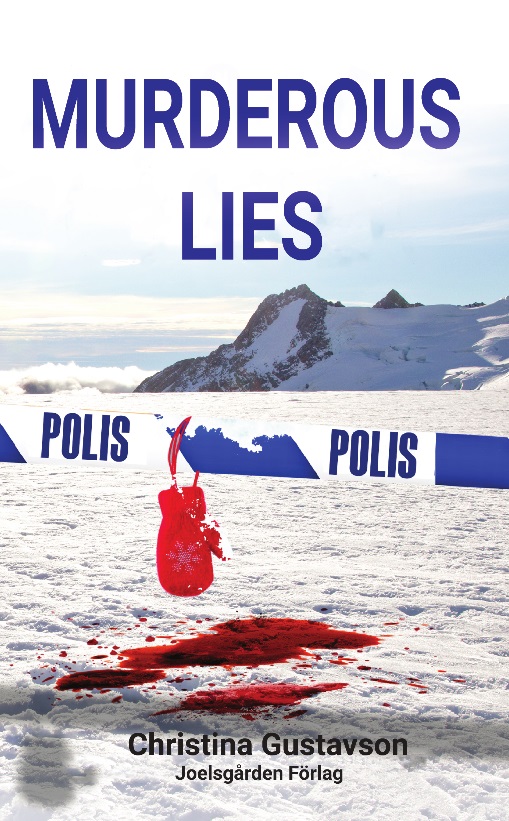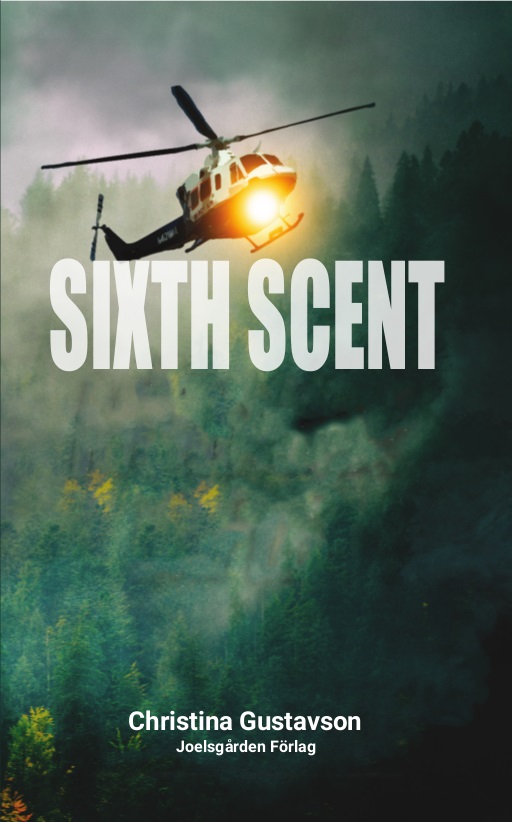The Swedish crime novelist shares how her career in forensic psychiatry shapes her writing.

If anyone knows how to get inside the mind of a killer, it’s Christina Gustavson.
The Swedish writer is well into her second act as a novelist after a successful career as a forensic psychiatrist and medical doctor.
Christina puts these skills to good use in her crime novels, two of which are now available in English via Amazon: Murderous Lies and Sixth Scent. Set in the idyllic Swedish countryside, they simmer with tension, complex characters and twisty, ripped-from-the-headlines plots.
I loved working with Christina on the copyedit for the English versions of these books, and I asked her to share more about her process here.
Christina, tell us a little about yourself. Where are you based and what kind of novels do you write?
I live in the southern part of Sweden and I mainly write crime novels, but I have written some non-fiction books on mental health and some other more feel-good novels as well. I have a PhD in forensic psychiatry, and I’m also a medical doctor and a specialist in general psychiatry, general medicine and forensic psychiatry.
How did you get started in writing?
I have been writing since I was very young. In the beginning I wrote a diary, articles for newspapers, lectures during my work etc, and gradually the idea of writing a book came to my mind. I actually started writing non-fiction books; the first of these, about recognising the symptoms of depression in family, friends and colleagues, sold out within a week, and this naturally spurred me to continue writing and explore other genres as well.
What drew you to the crime/thriller genre?
Probably three things: the profession of my grandfather, being a local judge; my own profession as a medical doctor and forensic psychiatrist; and the fact that I like solving problems. I prefer to read crime novels, so when starting writing it was natural to write crime novels.


How do you draw on your background as a forensic psychologist in your fiction? For instance, does it help you understand your characters’ motives? Do you have insight into police methods?
Both. It definitely helps me understand the motives and what goes on in the characters’ heads, but I have insight into police methods as well.
Where do your ideas for your novels come from?
It might be a picture, a headline in a newspaper or just a few words I overheard accidentally somewhere that thrilled my imagination. I am very careful never to use my previous patients and their crime stories in my books, because of privacy laws, but also because it’s more fun to invent my own stories and be creative.
If over a hundred other authors have written about crimes in our capital, why should I? I prefer to find my own ways and unique settings.
I love being able to visit the Swedish countryside through your novels. What makes it a great place to set a crime?
A crime can take place anywhere, but I have chosen to write about the Swedish countryside and places I know well, since it helps me to build more authentic stories. Besides, if over a hundred other authors have written about crimes in our capital, why should I? I don’t like to follow the mainstream. I prefer to find my own ways and unique settings.
Can you share a little bit about your writing process? Do you have a writing routine?
Yes, I have a routine. I get up at 6.30 am every day, seven days a week, and sit down in front of my laptop and try to keep up “office hours”. But writing is also a thinking process – the words do not automatically pour out from my pen like water from the tap, thus I think a lot while driving around in the countryside, and I have a special recliner chair where I can sit and permit myself to do nothing at all but think.
I get many ideas that I like to explore. This means I’ve started writing several books. I write one chapter here and there when I feel like it, or get some idea, but when I have written approximately 25 percent of a book, I think it might be worthwhile completing it, and I decide to go for it. Then I work only on that manuscript until the whole book is ready.
When writing a non-fiction book, I am definitely a plotter, but when writing crime fiction I start from an idea and then I like to see where the story goes. I have discovered that sometimes my characters start to live their own lives and don’t always do what I had had in mind when starting the writing process. This makes the writing very thrilling for me.
I’ve really enjoyed working on the English versions of your books. Can you share some of the biggest differences you’ve found in writing for English readers as opposed to Swedish?
There are linguistic differences – for example, in English you would say, He opened his mouth, while in Swedish, people would think, What! He can hardly open anyone else’s mouth, so in Swedish it will be He opened the mouth.
But the main trap is what is understood “between the lines”. This differs a lot, as well as various expressions and idiomatic sentences that can’t be understood if translated word by word.
I have discovered that sometimes my characters start to live their own lives and don’t always do what I had in mind when starting the writing process. This makes the writing very thrilling for me.
How do you find the editing process in general? Do you enjoy it?
I enjoy it very much, though it is a tough job. Sometimes I have to “kill my darlings”, sometimes I find eye openers or realise that what I have written can be misunderstood or not understood at all. To work with an editor is a fantastic process, giving a feeling of completion, a feeling that now this book can’t be better, and I am ever so grateful for having your help in improving and refining my English manuscripts. [Editor’s note: Thank you!]
What do you think makes a great crime novel? What advice would you give other authors who want to write crime?
Everyone’s taste is different, but I like realistic stories; it must work. My advice:
It will be more fun for the reader if you place your plot in a place no one else has written about before. Make it your own spot on earth.
Use a scenario (place, profession, music etc) that you know very well and can give exact descriptions about.
The police work must be accurate when writing crime.
Don’t just tell about things happening as seen in a distance or told afterwards, but let the reader, through your words, be right there where it happens, and see, hear, smell, taste and experience.
Be careful about your research and spend time finding your facts.
Avoid giving psychiatric diagnoses. My guess is that at least 95 percent of the world’s population has none, so try to stay within the “normal” variables – but if you do use a diagnosis, make sure your character fulfils 100 percent of the criteria throughout the whole book.
Don’t forget to portray instead of giving plain descriptions.
If you’re interested in crime fiction, you have probably seen a number of American films or TV series. Court procedure and police work is not like that everywhere. Do find out the exact procedures in your own country or the country where you placed your plot.
What’s next for you – when will Sixth Scent be released and do you have another book in the works?
Sixth Scent is out now. Since I know by experience that I get a kind of “post-partum depression” when I have published a new book, I’ve already started a new project.
What’s the best way for English readers to keep up with your work?
You can visit my website http://www.gustavson.se or follow me on Facebook: http://www.facebook.com/christina.gustavson.58 or Instagram: @christinagustavson.forfattare
Christina has written a staggering 17 crime novels, published in Swedish. Two have been translated into English and are available on Amazon: Murderous Lies and Sixth Scent.
